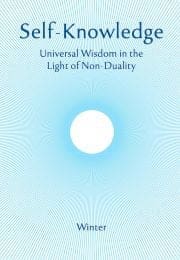Contentment: How Much is Enough?
The practice of contentment is widely recommended on the paths to inner illumination. The Buddha taught that the way to freedom from suffering is freedom from craving. And according to the gospel, Christ told his followers that whatever happens, the best prayer is: ‘Thy will be done’. Contentment, or Santosha, as it is called in Sanskrit, is one of the great inner qualities prescribed by Patanjali and the Bhagavad Gita.
Even as a simple life-skill, it is clear that choosing to be content with what we have, and not to dwell unhappily on what cannot be changed, is a big step to inner well-being.
And yet, we often find it hard to practise contentment. It is easily smothered by strong, fast-changing moods and longings. And when we try to practise contentment, our sense of purpose may be deflected by questions arising in the mind like: why be content when something better may be possible? Will contentment stop me making efforts to improve the situation, or even to pursue a path of inner growth? So let’s consider the real nature and value of contentment, and how we can find it.
We all begin our life-experience looking for happiness and trying to avoid suffering. We make efforts to get what we need and enjoy, and we form connections with others whose interests coincide with our own. These efforts bring some successes, and inevitably, some frustrations.
At a certain point we realise that in pursuing well-being, it is best to be able to find some amount of good feeling that does not depend on our situation and the results of our efforts. We learn that sometimes, perhaps often, we can change the way things affect us, even when we cannot change the situation around us. In this way we all begin to understand the value of contentment, as a kind of happiness that is not entirely determined by our circumstances. But there will be differences in exactly what contentment means to us according to the goals we choose.
If we believe that the highest good is to be found in the life of the world, we will value contentment as a strategy to maintain positivity, conserve our energy, and to deal with difficulties.
This kind of contentment doesn’t mean resting satisfied with what we have attained so far; it is more of a life-skill that helps us to pursue our goals in the world, whatever they may be, and which might include real achievements in helping others.
Contentment will mean something subtly different if our highest aim is not for something or somewhere in the world, but to discover the reality that transcends the world we experience through our mind and senses.
Subscribe or enrol for free guest access to read all of this article and Self-Knowledge online.
Already subscribed or enrolled? Log in:


